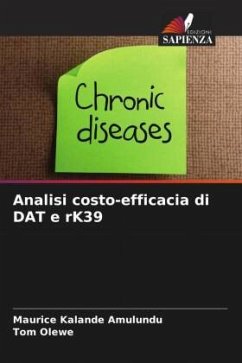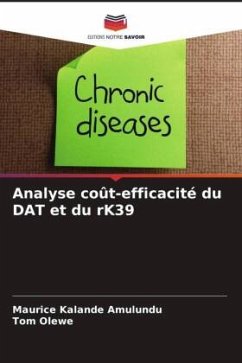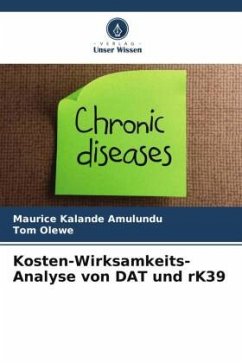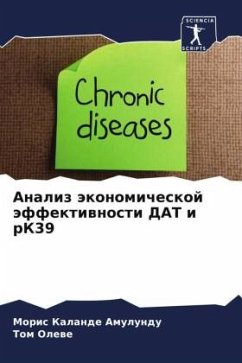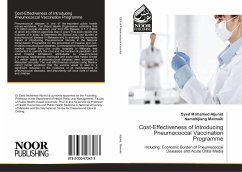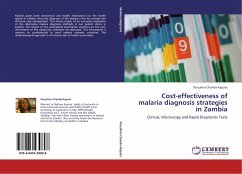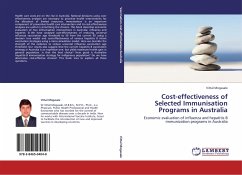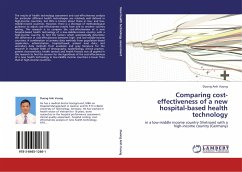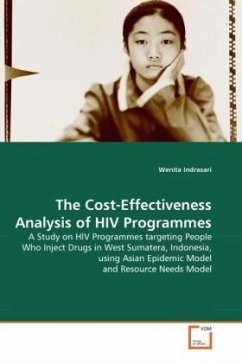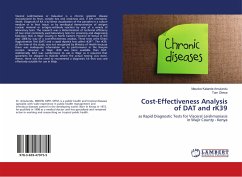
Cost-Effectiveness Analysis of DAT and rK39
as Rapid Diagnostic Tests for Visceral Leishmaniasis in Wajir County - Kenya
Versandkostenfrei!
Versandfertig in 6-10 Tagen
27,99 €
inkl. MwSt.

PAYBACK Punkte
14 °P sammeln!
Visceral Leishmaniasis or Kala-Azar is a chronic systemic disease characterized by fever, weight loss and weakness and, if left untreated, death. Diagnosis of KA is by direct visualization of the parasites in a culture medium or in host tissue; or by serological demonstration of antigen nuclear material or antigen-antibody reaction by way of a variety of laboratory tests. The research was a determination of technical efficiency of two most commonly used laboratory tests for screening and diagnosing Kala-Azar (KA) in Wajir County in North Eastern Province of Kenya in the year 2008 by way of a c...
Visceral Leishmaniasis or Kala-Azar is a chronic systemic disease characterized by fever, weight loss and weakness and, if left untreated, death. Diagnosis of KA is by direct visualization of the parasites in a culture medium or in host tissue; or by serological demonstration of antigen nuclear material or antigen-antibody reaction by way of a variety of laboratory tests. The research was a determination of technical efficiency of two most commonly used laboratory tests for screening and diagnosing Kala-Azar (KA) in Wajir County in North Eastern Province of Kenya in the year 2008 by way of a cost-effectiveness analysis. These tests were Direct Agglutination Test (DAT) and a rapid dipstick test called rK39(TM). The rK39, at the time of the study, was not recognized by Ministry of Health because there was inadequate information on its performance in the Kenyan context. However, in Wajir, rK39 was more available than DAT. Additionally, DAT was cumbersome to use in Wajir as it required that spicemens be shipped to Nairobi where the actual testing was done. Hence, there was the need to recommend a diagnostic kit that was cost effectively suitable for use in Wajir.



